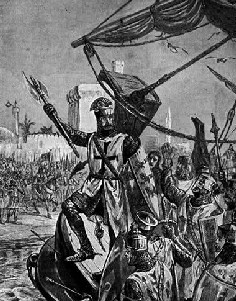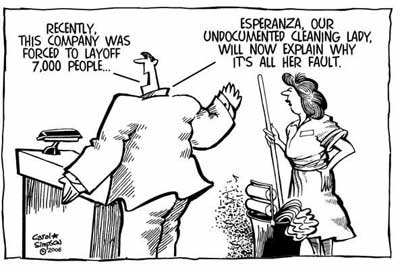(Continued from yesterday’s post) 
After reading Alison’s story in "On Being Liked", the incident I described in the last post and my treatment of Colin came back to me like a swift blunt blow. More importantly, the truth and insight that the Gospels attest to regarding my (our) sacrificial ways, and how God desires to save us from all that, leapt out with a freshness that I can hardly overestimate. That said, I dedicate yesterday’s and today’s post to James Alison. (The following is a mere stencil of his thought.)
To the conclusion…
Let me revisit my experience with Colin. Imagine that when we were chasing Colin, he had run into traffic and been hit by a car and was hospitalized for a few months. It’s not hard to see that after a short time of regret, perhaps even genuine remorse, our group would be irritably off balance until we found someone else to pick on. And of course, with Colin gone, all of us on the lower levels of the prevailing power structure would be seriously worried.
But now suppose that Colin, having healed, came back to school not sullen, or angry, or vengeful; not holding on to any resentment, but entirely free and open and wanting to play with us, because he truly liked us. And what if it became apparent that he always did like us, had always wanted just to play with us, but that before our causing his injury, we just couldn’t see it.
Because the relationships in our group depended on there being an outcast, this would be hugely destabilizing. But, at the same time, Colin’s presence would now offer us a way of relating that was free from there being others who were supposedly inferior or superior to us. That is, free from structures of power.
And in this buoyant freedom we could find ourselves called into being people we had no idea we could be. Because Colin’s non-violent “liking-presenceâ€, would be our forgiveness. In this way, Colin could become our radical counter model.
This, of course, is what is offered to us by Jesus Christ. Jesus, in allowing himself to be the ultimate scapegoat, and through his resurrection-as his forgiving and merciful return, is now our radical counter model that has nothing to do with retaliation, shame, or any sort of violence.
In his dramatic self-giving act, Jesus exploded the power of the “scapegoating mechanism†and its false unity through sacrificial violence, offering us the possibility to renounce involvement in it and embrace true peace. As Christ put it, “Peace I leave with you; my peace I give to you. I do not give to you as the world gives.â€
Grow Mercy
Technorati Tags: James Alison, Scapegoating Mechanism, Atonement, Christianity, Peace, Religion, Violence


